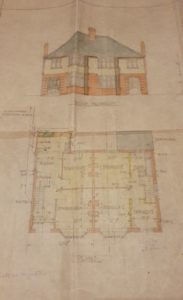Good morning everybody!
Here are your tasks for today:
Maths
Mental Maths Challenge: 8x tables
You will need at least 2 people to play this game.
Write out the multiples of 8 up to 96 on separate pieces of paper. Then write the numbers 1 to 12 on separate pieces of paper. Turn all 24 pieces of paper face down and play Memory Pairs by turning over 2 pieces at time when it is your turn. If you have matched a factor and a multiple, you can keep the pair. If you have not matched them, turn them back and it is the next player’s turn.
Maths No Problem: Textbook 5B Chapter 10 Position and Movement
Lesson 2: Describing Translations.
In Focus: Look at the task and discuss what ‘translation’ means – moving a shape without rotating, turning or flipping it. Ask your child which one of the vertices would end on point A if the shape is translated 3 units to the right and 2 1⁄2 units upwards? How would we write the result of the move? Ask them to start at (6, 6 1/2) to find point X. How would you write the final coordinate for point X? Lead pupils to writing the coordinates (6, 8 1⁄2), making sure they use brackets correctly.
Let’s Learn: Follow Let’s Learn 1 to show the translation. Follow Let’s Learn 2 and 3 to look at other possible translations
Guided Practice: During Guided Practice, the children are translating an irregular quadrilateral shape to various coordinates and writing the coordinates for specific vertices.
Workbook: Complete Worksheet 2, pages 79 – 80.
English
Reading: Your child should try to read for at least 20 minutes every day. Remember to log on to Accelerated Reader and complete quizzes for all the books you have read!
If you have a Lexia account, try to log on and complete at least 15 minutes a day.
Writing
Today we are moving on with learning our new model text, The Game. Follow the link here The Game 2 to read the rest of the story. Continue your storymap to include the rest of the story.
Your writing task today is to complete this sentence challenge: Take a look at the following sentences taken from the text and the definitions of the chosen words. Take each word and put them into new sentences of your own. How many sentences can you create?
1. … rain streaked the classroom windowpanes.
To streak along – to move rapidly, e.g. John streaked along the pavement towards the crowd.
2. … a resurgence of the game slap.
A resurgence – something that returns or starts again after disappearing for a while, e.g. The teachers have seen a resurgence of skipping games in the playground.
3. … the ferocity of a wild beast.
Ferocity – extremely fierce (fierce = strong, powerful, violent or frightening) e.g. We were surprised by the ferocity of the storm.
Spellings
Remember to keep practising your spellings ready for a sentence test on Friday:
conscience
tolerance
convenience
substance
vacancy
frequency
Topic: History
Over the next few weeks, I would like us to undertake a History Project into our home town of Weymouth. I think it is a lovely opportunity to learn a little bit about our local past which has helped to shape the town we live in today. And you’ll be suprised, the history of Weymouth and Melcombe Regis has more to offer than you may think!
I thought it would be great to start with the history of our own homes, so your task for this week is to find out anything you can about the history of the house where you live.
You could ask your parents, relatives or neighbours for anything they may know, any tales or stories they have heard or any documents they may have. I am lucky enough to have been passed the original architects drawings for my house:

You could search online for any local history pages which may have photographs of your road. If you live in a new estate, could you find anything about the land use before the house was built?
I have googled Southill Weymouth History and found some Francis Frith old map images of Southill and Radipole which are interesting to view.
It would be lovely to hear about anything you may find out, no matter how big or small!



